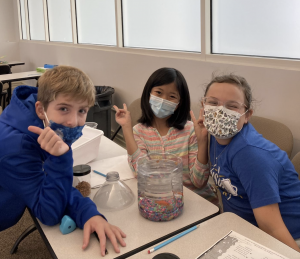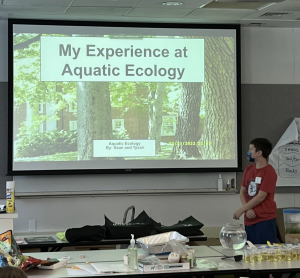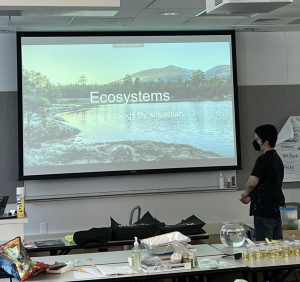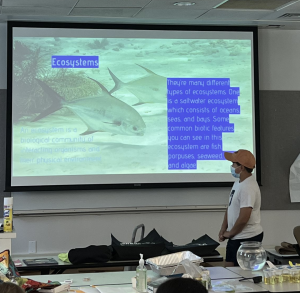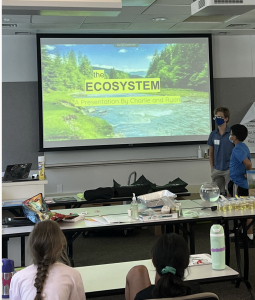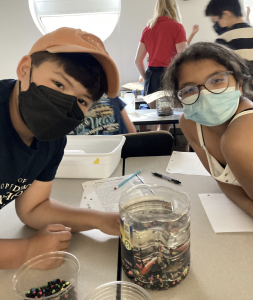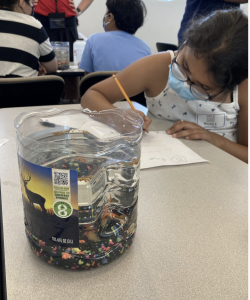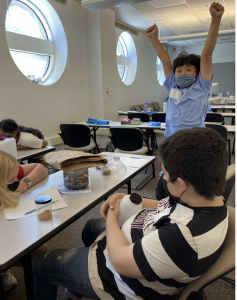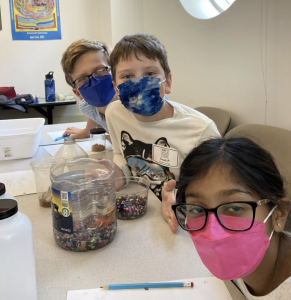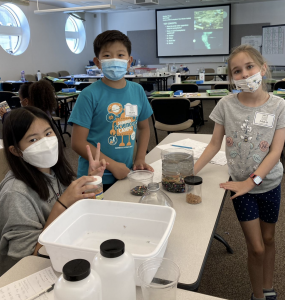Summer SAVY 2022/Session 2 – Aquatic Ecology for Rising 5th/6th Grade
Friday: Day Five of Aquatic Ecology was a day to remember. I am so proud, and humbled by my SAVY students’ critical thinking, communication, creativity and collaboration efforts this session. They truly warmed my heart and reminded me why I chose to become an educator. This was one of the best SAVY groups ever, and I am truly thankful that I was able to share a week with some great students.
Thursday: The door has closed on day 4. We worked on our Aquatic Ecology presentations which are sure to be a hit. Students, I mean scientists, took home their Plant and Worm habitats today. Tomorrow will end with a Digital Presentation BANG! Scientists will share their research with their peers. Let’s Go!
Wednesday: Day three was what any aquatic scientist would wish, to research the optimal environment for a goldfish. The challenge was fun but required some tenacity. Students had to experiment, explore, and observe water quality—acidic or alkaline water, pond or spring water, which was the best. The only way to find out was to put it through a pH test. This was the last of our experiments; it is time to see how well our scientists present information for others to see. Have a great afternoon.
Tuesday: Day two is in the books. Our scientists completed several experiments during our session today. We looked at soil samples to see what soil had the highest alkaline or acidic pH levels. We also hung out with Night Crawlers in order to design a sustainable habitat for these creatures. Thank you, students, for being awesome scientists and researchers. Tomorrow, we are diving deeper into unknown waters. Get ready scientists as Aquatic Ecology continues.
Monday: Congratulation, students, on completing your first DEEP DIVE into Aquatic Ecology. We had a great time learning about different ecosystems and how they affect our environment. Tomorrow we plan to go deeper, so deep that we can hang out with Night Crawlers (hint). Come ready to have a full day with many exciting discoveries.
